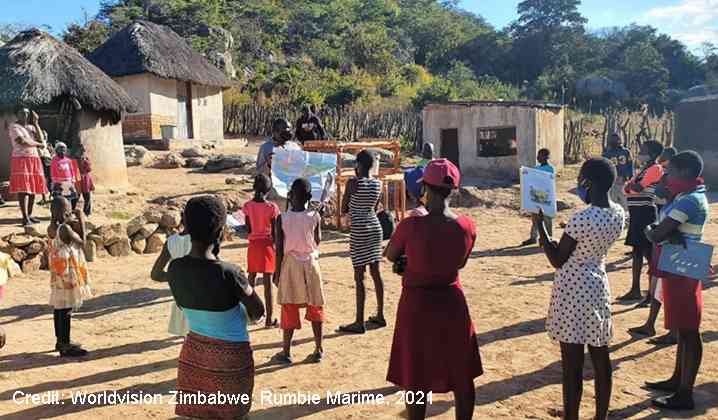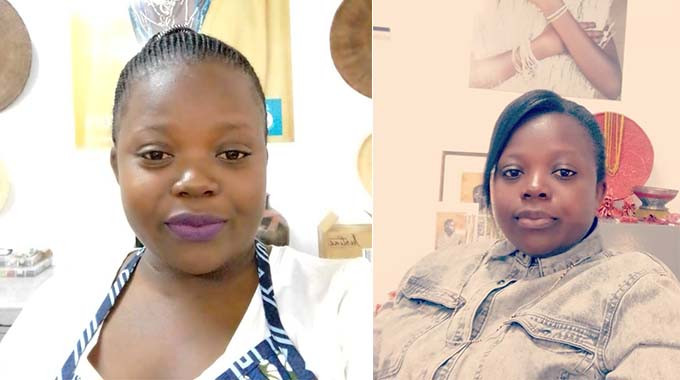
BY JAIROS SAUNYAMA
THEY say when life gifts you with lemons, make lemonade, but while this might just be an overused cliché seeking to encourage positive thoughts in difficult times, the tale seems a little different for one trio.
In the “unfortunate circumstance” of being refugees, the trio have not only made good of their time in the refugee camp, but have also brought smiles and entertainment to many in a similar situation. Not only have they made lemonade, they might have become “lemonade” themselves.
This is the tale of three young female dancers, Sophia Lide (22), Sizzana Jumbe (16) and Celine Bagarwa (20) who are refugees at Tongogara Refugee Camp (TRC) in Chipinge.
Having been brought to the confinement nearly a decade ago, the trio, all Congolese nationals, have refused to shelve their talent due to circumstances, but rather thrive in such unfavourable conditions to exhibit their abilities.
“We are dancers; we are popular in this camp. We perform during the World Refugee Day commemorations,” said Lide, who is the group’s leader.
TRC is home to more than 14 000 refugees, most of them from the Great Lakes region, which includes countries like Somalia and DRC among others, who fled from their homes due to civil wars and other conflicts.
The refugees live in shacks and makeshift houses at the camp.
- Chamisa under fire over US$120K donation
- Mavhunga puts DeMbare into Chibuku quarterfinals
- Pension funds bet on Cabora Bassa oilfields
- Councils defy govt fire tender directive
Keep Reading
The young girls, some of them students at the nearby Gideon Mhlanga Secondary School, said they can be hired to perform at weddings outside the camp.
Jumbe and Bagarwa are both doing Form 3 while Lide is a Form 5 student.
“We have our brothers and sisters in Harare who know about our existence. Sometimes we perform in Harare and Mutare. However, due to the current Covid-19 pandemic it has been long since we secured a lucrative deal,” added Lide.
During their rehearsals, some rhumba tune from musician Kofi Olomide is belted from a Chinese-made hifi.
Though the sound seems to be poor, it is all that the girls need to perfect their skills as well as create new dance moves.
The whole exercise is done with finesse and etiquette as they share the same language, Swahili, hence a smooth flow and easy coordination.
With their small habitat at the heart of the camp, it doesn’t take time for a small crowd to form as other refugees get the opportunity of free entertainment.
The girls dream that one day they will be called to perform at bigger and better platforms.
“We are refugees but we have our talent. The sky is the limit. We are confident that one day we will perform before big audiences outside this camp. We are also looking for a sponsor who can assist us with outfits and other things,” said Jumbe.
The dancers, like many other refugees at TRC, said they will not return back to their home countries as they have found comfort in the country.
Despite surviving on other odd jobs and horticulture activities, the refugees are beneficiaries of food from the World Food Programme (WFP) and other agencies.
Bagarwa believes that they have what it takes to survive and make it big in life through dancing.
“We are not paupers, we have the talent. We need exposure,” she said.
TRC administrator Johanne Mhlanga said a number of refugees at the camp have amazing talent which needs to be tapped.
“There is amazing talent here from sport to music. This is a complete community. The camp can produce great performers if talent is identified and moulded. The young boy, who is currently causing waves Herman, was here before. He became popular in Harare but at one point he stayed here,” he said.
For now, the Congolese dancers continue performing in their community due to Covid-19 restrictions that have seen live performances and intercity travelling being banned. The girls continue to gyrate before their own. The gods of entertainment, if they awaken from their deep slumber, who knows, maybe one day they will be called to perform at a bigger stage at Sakubva Stadium in Mutare.
“We are dancers but we are inspired by Killer T. His music is popular here and we like him a lot. We pray that one day he will visit us or we will perform together,” said Lide.
Though Bagarwa dreams of becoming a lawyer once she completes her studies, she remains one of the most talented dancers in the Lowveld.











